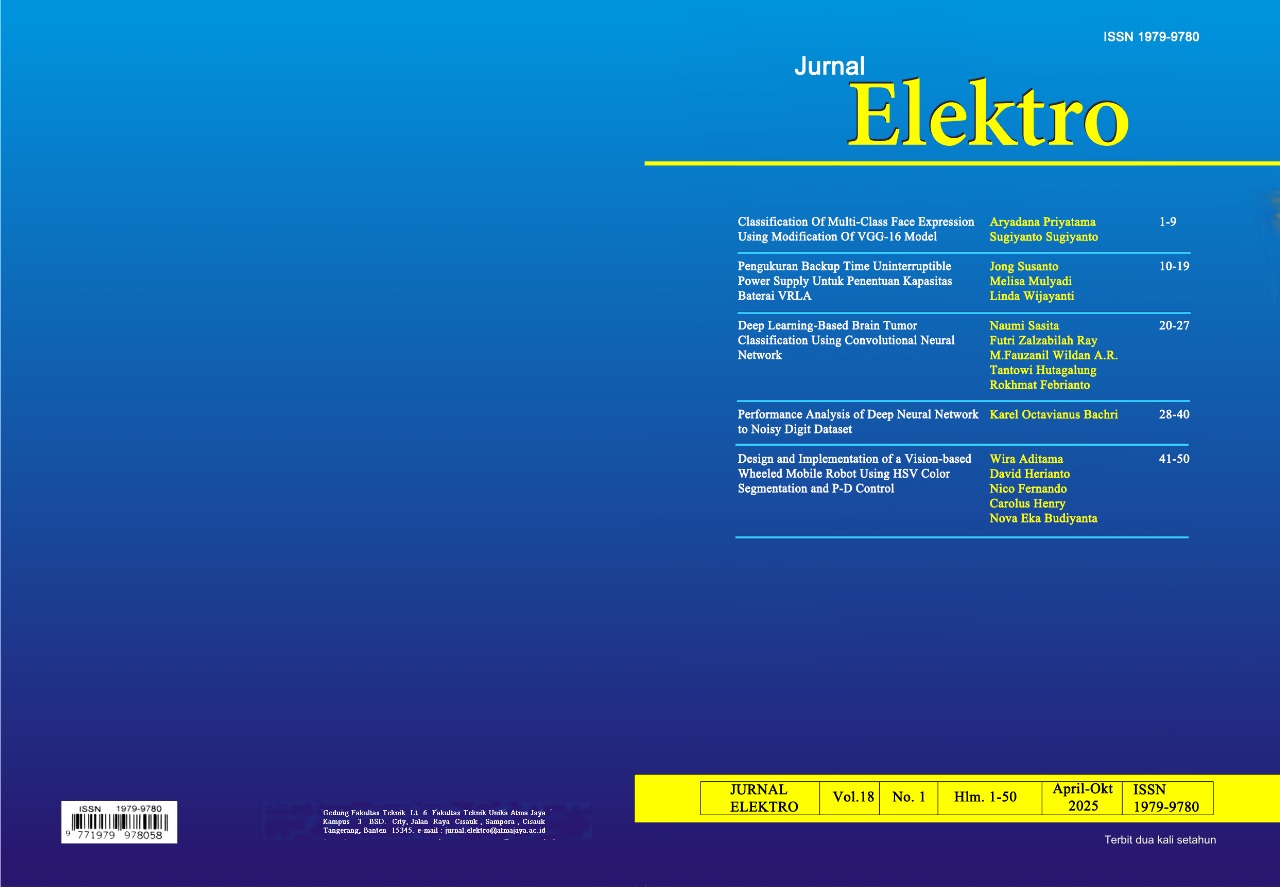Pengukuran Backup Time Uninterruptible Power Supply Untuk Penentuan Kapasitas Baterai VRLA
DOI:
https://doi.org/10.25170/jurnalelektro.v18i1.6264Keywords:
battery, backup time, capacity, current, discharge, voltageAbstract
A battery is a device that stores power in an Uninterruptible Power Supply (UPS) system. The most common type of UPS battery found today is Valve Regulated Lead Acid (VRLA). So that the UPS can work optimally according to its capacity and backup time, it is necessary to determine the battery capacity. In this research, the capacity of the VRLA battery on a particular UPS was determined based on direct testing and based on calculations. VRLA battery capacity calculations refer to the UPS and battery datasheet. The calculation stage starts from calculating the current and battery power used according to the load power absorbed by the UPS and referring to the table of constant current discharge and constant power discharge characteristics. Determining battery capacity based on testing is done by measuring the backup time of the UPS. The calculation results and test results directly show that there is a difference in backup time because the battery used is an old stock battery. The research results also prove that determining battery capacity by calculation can ensure that the battery capacity is more appropriate or not too large so it is more economical.
References
[1] V. Katkade, P. Kamble, A. Kashid, “A Review on Lead Acid Battery,” International Journal of Research
Publication and Reviews, vol 3, no 12, pp 1464-1468, 2022
[2] M.A.F, Rigoursyah, E. Kurniawan, S. Yuwono, “Perancangan UPS Berbasis Sumber Energi Listrik
Terbarukan dan PLN Termonitor Perangkat IOT,” e-Proceeding of Engineering, vol.7, no.3, pp 8730-
8741, 2020
[3] Robert. T, “UPS Working Priciple and Types,” Forum Electrial.com, 2023.
[4] British Standard Institution, “Standard BS EN IEC 62040-3:2021,” Part 3: Method of specifying the
performance and test requirements.
[5] Dr. Hasan Abdul Zehra, “FUEL CELLS & BATTERIES,” University of Babylon Lecturer No.14, pages
1 – 3.
[6] EATON, “The Eaton UPS and power management, “Fundamentals handbook, page 11, 2020.
[7] S. Sundar, Manikandan, “Sizing Ups And Battery Banks For Domestic Power Backup: A Literature
Review,” International Research Journal of Modernization in Engineering Technology and Science, vol 5,
no. 9, pp 1923-1927, 2023
[8] VRLA Technical Handbook, Panasonic Industry, 2021.



